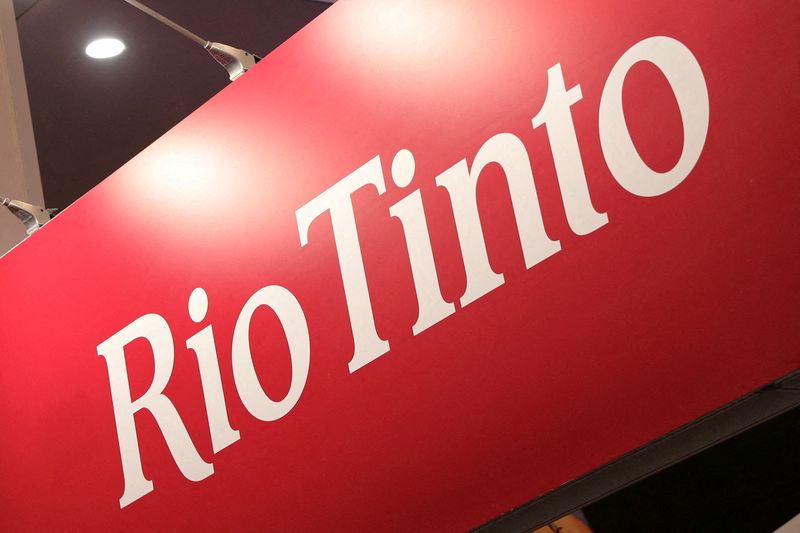Rio Tinto inks deal to bring iron ore rail car manufacturing to Pilbara
2023.06.12 22:54

© Reuters. FILE PHOTO: FILE PHOTO: The Rio Tinto logo is displayed above the global mining group’s booth at the Prospectors and Developers Association of Canada (PDAC) annual conference in Toronto, Ontario, Canada March 7, 2023. REUTERS/Chris Helgren
(Reuters) – Mining giant Rio Tinto (NYSE:) said on Tuesday it will partner with Western Australia-based Gemco Rail to bring local iron ore rail car manufacturing and bearing maintenance to the Pilbara region.
Rio intends to invest about A$150 million ($101.2 million) to acquire 100 domestically built ore rail cars over six years, it said.
Adequate rail and road infrastructure are crucial to iron ore producers as they add to the convenience of swiftly moving around finished products to consumption centres, while also easing the process of receiving raw materials from local mines.
The company, which operates about 14,000 ore cars across its Pilbara rail network, said that each ore car can hold an estimated 118 tonnes of iron ore.
Gemco, which is part of transport solutions provider Engenco, will build the first 40 ore cars at its facility in Forrestfield, with the first car expected to be delivered in 2024.
Rio also plans to establish an additional construction facility by the end of 2024 in order to aid the development of Gemco’s ore cars.
The new facility, based in Karratha, will reduce transportation woes between Pilbara and Perth, while reducing 300 tonnes of carbon dioxide each year, Rio said.
“This will bring a new industry to Pilbara, creating jobs and providing more opportunities for local and Indigenous businesses,” Rio Tinto ‘s Chief Executive Simon Trott said.
Once operational, Gemco Rail is expected to build an average of 10 ore cars per year, under the partnership.
To further smoothen its operations in Pilbara, Rio said it will embrace continued investment in bearing refurbishment, a sustainable and green maintenance procedure that delivers significant reduction in raw material consumption, over 10 years.
($1 = 1.4819 Australian dollars)








